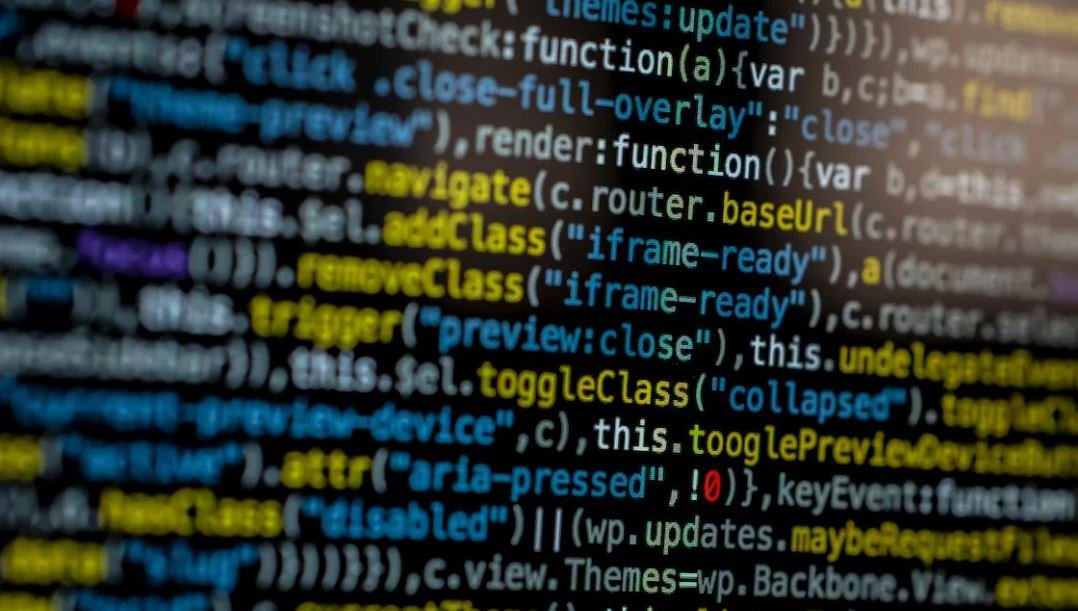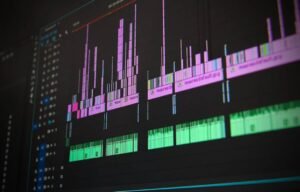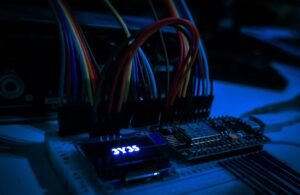When Is AI Taking Over?
Introduction
Artificial Intelligence (AI) is advancing rapidly, and concerns about its potential to surpass human capabilities prevail. With advancements in machine learning algorithms and computing power, many wonder when AI will truly take over. In this article, we will explore the current state of AI and its potential for achieving human-level intelligence.
Key Takeaways
- AI is progressing at a remarkable pace.
- There is no definite answer to when AI will surpass human abilities.
- AI has the potential to significantly impact various industries and society as a whole.
AI Development and Capabilities
AI has made significant strides in recent years and is continuously evolving. Machine learning techniques, such as deep learning, enable AI systems to learn from vast amounts of data and improve their performance over time. However, achieving human-level intelligence remains a complex challenge.
*AI systems are becoming increasingly capable of performing complex tasks once thought exclusive to humans.
The Uncertainty Surrounding AI Singularity
The moment when AI surpasses human intelligence, often referred to as the “AI singularity,” remains uncertain. Predicting its exact timing is challenging due to various factors, including the pace of technological advancements and the complex nature of human cognition.
*Smarter AI systems may emerge sooner than we expect, leading to unpredictable outcomes.
Impact on Industries
AI already has a profound impact on various industries, revolutionizing sectors such as healthcare, finance, manufacturing, and transportation. With AI’s ability to automate complex tasks and analyze vast amounts of data, it offers tremendous potential for increasing efficiency and driving innovation.
*AI-powered automation can lead to significant productivity gains in industries across the board.
Concerns and Ethical Considerations
As AI evolves, ethical concerns arise. Questions about job displacement, privacy, bias, and autonomous weapon systems become more pronounced. It is crucial to establish guidelines and regulations to ensure the responsible development and use of AI technologies.
*The ethical dimensions of AI raise important societal questions that need careful consideration.
Table 1: AI Milestones
| Year | Milestone |
|---|---|
| 1956 | The birth of AI: The field of AI research is founded at a conference in Dartmouth College. |
| 1997 | IBM’s Deep Blue defeats Garry Kasparov in a chess match. |
| 2011 | IBM’s Watson wins Jeopardy! against human champions. |
The Evolution of AI Hardware
Advancements in hardware are crucial for AI development. Traditional processors and graphic processing units (GPUs) are being enhanced, while specialized AI hardware, such as tensor processing units (TPUs), are being developed to accelerate AI computations.
*Specialized AI hardware reduces training times and improves AI performance.
Table 2: AI Hardware Comparison
| Hardware | Advantages |
|---|---|
| Traditional CPUs | General-purpose computing suitable for a wide range of tasks. |
| GPUs | Parallel processing power, well-suited for training deep neural networks. |
| TPUs | Highly optimized for accelerating machine learning workloads. |
Ethical Considerations in AI Development
The development of AI must prioritize ethical considerations to address potential challenges. Transparency, accountability, and fairness are crucial to avoid biased decision-making and ensure AI benefits all of society.
*AI developments should be guided by ethical principles to avoid unintended negative consequences.
Table 3: AI’s Ethical Challenges
| Concern | Description |
|---|---|
| Job Displacement | The potential impact of AI automation on employment opportunities. |
| Privacy | The protection of individuals’ personal information as AI systems collect and analyze vast amounts of data. |
| Bias | The risk of AI systems perpetuating social biases, potentially leading to discriminatory outcomes. |
The Path Forward
While we cannot predict the precise moment when AI will surpass human capabilities, it is clear that its ongoing development will continue to transform industries and society as a whole. Striking a balance between technological advancement and ethical considerations is key to harnessing AI’s potential for the benefit of all.
*Embracing AI responsibly will shape the future of humanity by unlocking new possibilities and addressing existing challenges.

Common Misconceptions
Misconception 1: AI will replace all human jobs
One common misconception about AI is that it will completely replace human jobs, leading to widespread unemployment. However, this is not entirely true. While AI has the potential to automate certain tasks and roles, it is more likely to augment human capabilities rather than eliminate jobs altogether.
- AI technology can enhance productivity by automating repetitive tasks, freeing up humans to focus on more complex and creative work.
- AI often requires human involvement for decision-making and context interpretation, making collaboration between AI and humans crucial for its successful implementation.
- New industries and job roles may emerge as a result of advancements in AI technology, creating new opportunities for employment.
Misconception 2: AI is rising to take control over humanity
Another misconception surrounding AI is the fear that it will rise to take control over humanity, as depicted in science fiction movies. However, this notion is far from reality. AI systems are designed to perform specific tasks and operate within predefined boundaries set by humans.
- AI lacks consciousness and self-awareness, thereby lacking the capability to develop desires or ambitions to take over the world.
- AI systems are developed and maintained by humans, ensuring that they remain accountable for their actions and making it unlikely for machines to achieve full autonomy.
- The development and deployment of AI systems abide by strict ethical guidelines and regulations to prevent misuse and prioritize human welfare.
Misconception 3: AI can fully replicate human intelligence
Many people believe that AI has the capacity to fully replicate human intelligence. However, this is a misconception as AI is still far from replicating the complexity and nuances of human cognitive abilities.
- AI excels in specific tasks that are rules-based or require pattern recognition, but it still struggles with abstract reasoning and common-sense understanding.
- The “black box” nature of some AI models makes it challenging to interpret and understand how they arrived at a particular decision, unlike the transparent nature of human intelligence.
- Human intelligence encompasses emotional intelligence, creativity, and social skills, which AI currently lacks.
Misconception 4: AI is infallible and unbiased
AI is often portrayed as objective and unbiased decision-makers. However, this is not entirely true as AI systems are only as unbiased as the data they are trained on and the algorithms guiding their decision-making process.
- AI models can inherit the biases present in their training data, leading to potential discriminatory outcomes in decision-making processes.
- Humans are responsible for designing and training AI systems, inadvertently injecting their own biases into the models’ development and influencing their behavior.
- Vigilance and ongoing evaluation of AI systems are necessary to identify and mitigate biases, ensuring fair and ethical decision-making.
Misconception 5: AI will bring about immediate widespread disruption
Some fear that AI will lead to immediate widespread disruption and radical transformation across industries. However, the integration of AI technologies into various sectors will likely happen gradually rather than overnight.
- Adopting AI technologies involves significant investments, infrastructure changes, and workforce upskilling, making it a more gradual and long-term process.
- The implementation of AI often involves collaboration between humans and machines, requiring the adaptation of existing processes and workflows rather than complete displacement.
- Industries will evolve as AI is integrated, with routine tasks being automated and humans focusing on higher-value work.

The Rise of AI in Various Industries
Artificial Intelligence (AI) has rapidly become an integral part of numerous industries, revolutionizing the way tasks are executed and impacting our everyday lives. The following tables highlight compelling data and information, shedding light on the current state and future potential of AI in specific sectors.
AI Adoption in the Healthcare Industry
The healthcare industry has embraced AI technologies to enhance patient care, diagnostic accuracy, and medical research. This table provides an overview of AI adoption statistics in healthcare.
| Healthcare Sector | AI Adoption Rate (%) |
|——————————|———————-|
| Medical Imaging | 47% |
| Drug Discovery | 38% |
| Patient Data Management | 61% |
| Surgical Assistance | 32% |
| Disease Diagnosis | 49% |
AI Applications in the Financial Sector
Finance is an industry where AI has made considerable inroads, providing new opportunities for fraud detection, personalized banking, and risk management. The table below showcases some AI applications within the financial sector.
| Financial Application | AI Use Cases |
|—————————–|——————————————|
| Fraud Detection | Behavioral analysis, anomaly detection |
| Robo-advisory | Automated investment recommendations |
| Credit Scoring | Predictive modeling, alternative data |
| Chatbots | Customer support, virtual assistants |
| Algorithmic Trading | Predictive analysis, market optimization |
AI Impact on the Automotive Industry
The automotive industry has seen significant advancements with AI technologies, improving vehicle safety, autonomous driving, and fuel efficiency. This table highlights key areas impacted by AI in the automotive sector.
| Automotive Area | AI Influence |
|——————————|—————————————————-|
| Autonomous Driving | Enhanced object detection, intelligent navigation |
| Predictive Maintenance | Early fault detection, optimized vehicle performance |
| Voice Recognition | In-car virtual assistants, hands-free controls |
| Energy Efficiency | Adaptive cruise control, optimized engine systems |
| Enhanced Safety Systems | Collision avoidance, lane departure warning |
AI Applications in Retail
The retail industry has leveraged AI to deliver personalized shopping experiences, optimize inventory management, and carry out efficient supply chain operations. This table presents specific AI applications in retail.
| Retail Application | AI Use Cases |
|————————–|——————————————|
| Personalized Marketing | Customer segmentation, recommendation systems |
| Inventory Management | Demand forecasting, automated replenishment |
| Chatbots | Customer queries, product recommendations |
| Visual Search | Product identification, visual recommendations|
| Supply Chain Optimization| Route optimization, demand planning |
The Influence of AI in the Entertainment Industry
AI has revolutionized the entertainment industry, contributing to the development of realistic visual effects, personalized content delivery, and virtual assistants for content creation. The table below outlines the influence of AI in the realm of entertainment.
| Entertainment Aspect | AI Impact |
|——————————|———————————————|
| Computer-Generated Imagery | Realistic simulations, advanced rendering |
| Personalized Content | Tailored movie recommendations, playlist curation |
| Speech and Text Recognition | Automated closed captioning, voice-activated features |
| Scriptwriting Assistance | Character development suggestions, plot analysis |
| Music Creation | AI-generated compositions, automated mixing |
AI in Agricultural Practices
Agriculture has seen significant advancements with AI, enabling precision farming, crop monitoring, and yield optimization. This table highlights AI utilization in agricultural practices.
| Agricultural Area | AI Utilization |
|—————————|———————————————|
| Crop Monitoring | Automated disease detection, image analysis |
| Harvesting | Autonomous crop picking, yield prediction |
| Smart Irrigation | Water usage optimization, soil moisture analysis |
| Pest Control | AI-driven pest detection, targeted pest management |
| Livestock Management | Animal health monitoring, behavior analysis |
AI Applications in Education
AI has made its way into the education sector, facilitating personalized learning, intelligent tutoring, and efficient administrative tasks. The following table showcases essential AI applications in education.
| Education Application | AI Use Cases |
|——————————|————————————————–|
| Adaptive Learning | Personalized course recommendations |
| Virtual Classrooms | Simulated learning environments |
| Automated Grading | Efficient assessment and feedback |
| Language Tutoring | Intelligent language learning assistance |
| Plagiarism Detection | Efficiently identifying academic dishonesty |
AI Impact on Manufacturing
AI’s impact on manufacturing has been substantial, automating production processes, streamlining supply chains, and optimizing quality control. The table below highlights how AI is transforming the manufacturing industry.
| Manufacturing Aspect | AI Transformation |
|——————–|————————————————-|
| Production Automation | Robotic assembly lines, machine vision systems |
| Predictive Maintenance| Smart equipment monitoring, failure prediction |
| Supply Chain Optimization | Demand forecasting, inventory management |
| Quality Control | Automated defect detection, visual inspection |
| Process Optimization | Efficiency optimization, waste reduction |
AI in Environmental Conservation
AI technologies are playing a crucial role in environmental conservation efforts, from wildlife protection to energy-efficient systems. This table exemplifies AI’s contribution to environmental conservation.
| Environmental Application | AI Applications |
|—————————-|——————————————–|
| Wildlife Conservation | Animal monitoring, poaching detection |
| Smart Grids | Energy demand optimization, grid stability |
| Water Management | Leak detection, water quality monitoring |
| Waste Management | Intelligent waste sorting, recycling systems|
| Climate Change Prediction | Weather forecasting, carbon footprint analysis|
The pervasiveness of AI across industries signifies the increasing prominence of this transformative technology. As AI continues to evolve and integrate into businesses and societies, the potential for innovation and advancement seems limitless.
Frequently Asked Questions
Can you provide a timeline for when AI will take over?
There is no definitive timeline for when AI will take over. The development and adoption of AI technologies are ongoing, and the rate of progress can vary depending on various factors.
What areas or industries are expected to be most impacted by AI?
AI has the potential to impact a wide range of industries, including healthcare, transportation, finance, manufacturing, and customer service, among others. The specific areas that will be most affected will depend on the application of AI technologies and the specific needs and challenges of each industry.
Will AI completely replace human workers in the future?
While AI has the potential to automate certain tasks and processes, it is unlikely to completely replace human workers. AI is more likely to augment human capabilities, enabling workers to focus on more complex and creative tasks while machines handle repetitive and routine work.
What are the potential benefits of AI taking over?
The potential benefits of AI taking over include increased efficiency and productivity, improved decision-making through data analysis, advancements in medical diagnostics and treatments, enhanced customer experiences, and the automation of tedious tasks, freeing up human time for more creative pursuits.
What are the potential risks or challenges associated with AI dominance?
Some potential risks and challenges associated with AI dominance include job displacement and unemployment, ethical concerns regarding privacy and data use, biases and discrimination in AI algorithms, overreliance on AI systems, and the potential for AI to be used in malicious ways.
How will AI impact the healthcare industry?
AI has the potential to transform the healthcare industry by enabling more accurate diagnostics, personalized treatments, and improved patient care. AI can analyze large amounts of medical data, identify patterns and anomalies, and assist healthcare professionals in making more informed decisions.
What are the current limitations of AI technology?
Current limitations of AI technology include the inability to fully understand and replicate human emotions and intuition, difficulties in comprehending context and abstract concepts, challenges in ethical decision-making, and vulnerabilities to adversarial attacks.
How much progress has been made in AI research and development?
Significant progress has been made in AI research and development, particularly in the areas of machine learning and neural networks. AI technologies have witnessed advancements in natural language processing, computer vision, robotics, and autonomous systems. However, there is still much ongoing research and development to further improve AI capabilities.
How can society prepare for the potential impacts of AI?
Society can prepare for the potential impacts of AI by investing in education and reskilling programs to ensure workers have the necessary skills to adapt to changing job requirements. Establishing ethical guidelines and regulations for AI use, fostering interdisciplinary collaborations, and ensuring transparent and accountable AI systems are also important steps.
Should we be concerned about AI taking over?
While there are concerns associated with AI taking over, it is important to approach the topic with a balanced perspective. AI has the potential to bring about positive changes and benefits. However, it is crucial to carefully consider the ethical implications, address potential risks and challenges, and strive for responsible and beneficial implementations of AI technologies.




